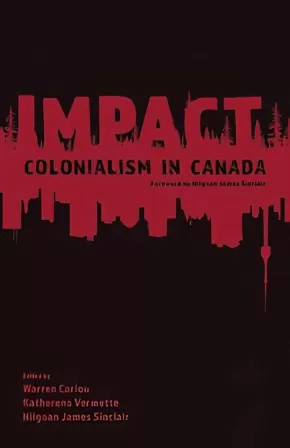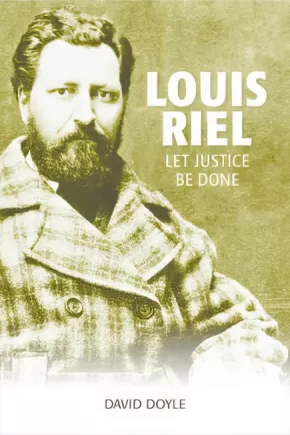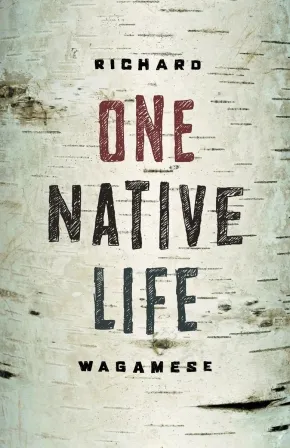Creative Non-fiction
Synopsis:
A collection of fiction, poetry, essays and creative non-fiction, this anthology features works by over 20 Indigenous Canadian writers. The book focuses on the effects of colonialism in Canada from both historical and contemporary perspectives.
"These stories are rich in geographies Indigenous peoples journey through today; on streets, in cities, and into the future. These stories will make you think, cry, and heal." —Niigaanwewidam James Sinclair, Editor
Reviews
"Impact: Colonialism in Canada presents writings that are often challenging, thought-provoking, and at times, gut-wrenching. The collection is a testament to strength and resiliency and the potential for healing, both within the Indigenous and non-Indigenous communities. But, it is not easy reading; it demands considerable insight, open-mindedness, and an understanding of an historical concept (i.e. colonialism), all of which point to the book’s being read and/or studied by students in the upper grades of high school. It’s certainly a work that would be a fine reference in a high school library collection, and teachers would find it to be an excellent supplemental text for the study of Aboriginal writers, as well as Canadian history, particularly as a reflection of the impact of colonialism upon Canada’s Indigenous peoples. Highly Recommended." - Joanne Peters, CM Magazine
Educator Information
Recommended for ages 17+
Additional Information
198 pages | 5.50" x 8.50"
Synopsis:
Louis Riel, prophet of the new world and founder of the Canadian province of Manitoba, has challenged Canadian politics, history and religion since the early years of Confederation. In Canada's most important and controversial state trial, Riel was found guilty of "high treason," sentenced to hang and executed on November 16, 1885. With 2017 being Canada's sesquicentennial of the initial Confederation of four British colonies, and with the question of reconciliation on the minds of many, the celebrations must recognize that the brutal execution of Louis Riel remains Canada's "great divide." Was the 1885 execution of Riel the hanging of a traitor? Or the legal murder of a patriot and statesman? Tried in a territorial court, Riel called out for justice, for an "inquiry into his career." To date, no such inquiry has been called. The spiritual and political father of the Métis nation and Western Canada remains branded a traitor to Canada.
In this imaginative re-enactment of his trial, Riel is finally given the opportunity to respond to his conviction for treason, offering his side of the story at Batoche and Red River.
Reviews
“In this era of reconciliation, Louis Riel: Let Justice Be Done is a tour de force. Exposing the combined pillars of racism and colonialism, Doyle assists in the decolonization of Canadian history during her sesquicentennial commemorations and celebrations.” — Venerable Dr. John A. (Ian) MacKenzie
“David Doyle’s advocacy, both in his writings and presentations, appropriates nothing from the Métis or their culture, rather it supplements it both for them and for all Canadians.” — George & Terry Goulet, authors of The Trial of Louis Riel
Additional Information
200 pages | 9.00" x 6.00" | 16 b&w photos
This book is creative nonfiction, a genre of writing that presents factually accurate narratives using literary style and technique (creativity).
Synopsis:
In One Native Life, Wagamese looks back down the road he has travelled in reclaiming his identity and talks about the things he has learned as a human being, a man and an Ojibway in his fifty-two years. Whether he's writing about playing baseball, running away with the circus, attending a sacred bundle ceremony or meeting Pierre Trudeau, he tells these stories in a healing spirit. Through them, he celebrates the learning journey his life has been.
Free of rhetoric and anger despite the horrors he has faced, Wagamese’s prose resonates with a peace that has come from acceptance. Acceptance is an Aboriginal principle, and he has come to see that we are all neighbours here. One Native Life is his tribute to the people, the places and the events that have allowed him to stand in the sunshine and celebrate being alive.
Reviews
"One Native Life contains sixty-five stories that are divided into four books: Ahki (Earth), Ishskwaday (Fire),Nibi (Water), andIshpiming (Universe). From this diverse selection emerge accounts not only of disappointment and racial discrimination but also of the transformative power of love and caring." - Sean Carleton, The British Columbia Quarterly
Educator Information
Suggested Grades: 9-12
ABPBC
Grades 10-12 BC English First Peoples Resource for units on First Peoples' Story and Place-Conscious Learning.
Additional Information
272 pages | 5.63" x 8.75"









